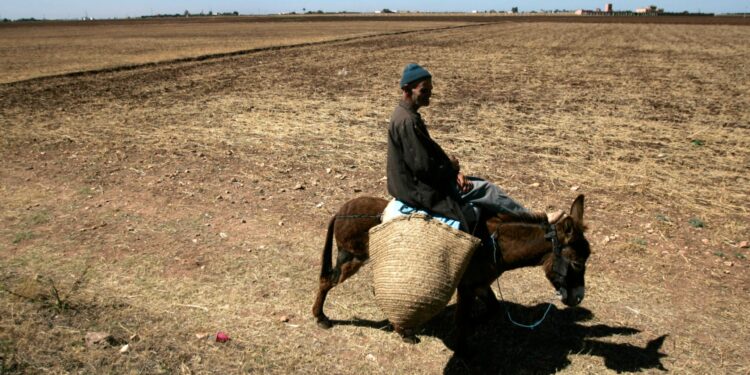A report published by the “Greenpis Middle East and North Africa” warned that European investments in the region contribute to draining the resources of their countries and exacerbating the climate crisis, but it meets the first place in Europe.
The report pointed out that European investments in sectors such as oil and gas, renewable energy and agriculture in the region often focus on extracting and transporting natural resources to Europe, without adding a real value to the economies of the host countries.
He pointed out that these practices contribute to the exacerbation of environmental deterioration and increase the effects of climate change in an area that is one of the most affected by global warming.
Draining Egypt and Morocco
The report drew attention to the negative effects of European agricultural investments in Morocco and Egypt, where the focus is on exporting crops, such as tomatoes and citrus fruits, consuming huge amounts of water.
He pointed out that these practices exacerbate the water crisis in two countries that originally face drought and the scarcity of water resources as a result of climate change, which threatens food security and biological diversity in the region instead of achieving the promised development.
The report also pointed out that the Middle East and North Africa region is witnessing a rise in temperature at a rate of twice faster than the global average, which leads to extremist climate events such as drought and floods.
He stressed that European investments instead of being part of the solution contribute to the exacerbation of this crisis by draining natural resources and increasing carbon emissions.
In turn, Hanan Kakas – in press statements – said that European investments in renewable energy and green hydrogen in countries such as Egypt and Morocco must give priority to local development, sustainability and justice and not for their own interests, in reference to the importance of implementing Climate justice.
Despite the promotion of renewable energy projects – such as green hydrogen – as sustainable solutions, the report emphasized that these projects serve the interests of Europe when they implement them in the countries of the region more than their contribution to local development.
The report pointed out that these investments enhance economic dependency by the Middle East and North Africa countries, rather than enabling them to achieve self -sufficiency.
The report also called on European countries not to finance the climate crisis and export social and environmental costs to the countries of the region, noting that foreign investments should protect the host communities and support the management of their resources.



